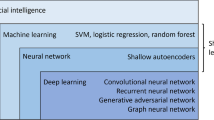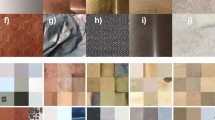Abstract
The promise of digital technology to greatly improve the efficiency of sorting and processing facilities of the future has not yet been fully realised. Improved sensor-based material flow characterization methods may pave the way for new sensor applications including adaptive plant management, increased sensor-based sorting, and more far-reaching data utilisations throughout the value chain. Using quantum remote sensors, this research proposes a novel deep learning model-based technique for evaluating healthcare data. In this scenario, healthcare data from quantum far-field sensors is collected and analysed using fuzzy K clustering-based kernel convolutional transfer Bayesian neural networks. Experimental evaluations of various detected signal data are analysed in terms of accuracy, precision, recall, and root-mean-squared error. In addition, we demonstrate that the proposed approach has reasonable computation speeds, meeting the requirements of real-time node processing on smartphones and a wearable sensor platform.




Similar content being viewed by others
Data availability
All the data’s available in the manuscript.
References
Al-Ashwal, N.H., Al Soufy, K.A., Hamza, M.E., Swillam, M.A.: Deep learning for optical sensor applications: a review. Sensors 23(14), 6486 (2023)
Baduge, S.K., Thilakarathna, S., Perera, J.S., Arashpour, M., Sharafi, P., Teodosio, B., Shringi, A., Mendis, P.: Artificial intelligence and smart vision for building and construction 4.0: Machine and deep learning methods and applications. Autom. Constr. 141, 104440 (2022)
Cuțitoi, A.C.: Remote patient monitoring systems, wearable internet of medical things sensor devices, and deep learning-based computer vision algorithms in COVID-19 screening, detection, diagnosis, and treatment. Am. J. Med. Res. 9(1), 129–144 (2022)
Dang, L.M., Min, K., Wang, H., Piran, M.J., Lee, C.H., Moon, H.: Sensor-based and vision-based human activity recognition: a comprehensive survey. Pattern Recogn. 108, 107561 (2020)
Dhanalakshmi, S., Nandini, P., Rakshit, S., Rawat, P., Narayanamoorthi, R., Kumar, R., Senthil, R.: Fiber Bragg grating sensor-based temperature monitoring of solar photovoltaic panels using machine learning algorithms. Opt. Fiber Technol. 69, 102831 (2022)
Goyal, S., Waghmare, J.M., Ranjanikar, M.A.: Heart disease classification models from optical device-based electrocardiogram signals using machine learning algorithms. Optik 271, 170176 (2022)
Hasan, M., Islam, M.M., Zarif, M.I.I., Hashem, M.M.A.: Attack and anomaly detection in IoT sensors in IoT sites using machine learning approaches. Internet of Things 7, 100059 (2019)
Huang, B., Sheng, X., Cao, J., Jia, H., Gao, W., Gu, S., Wang, X., Chu, P.K., Lou, S.: Machine-learning-assisted omnidirectional bending sensor based on a cascaded asymmetric dual-core PCF sensor. Opt. Lett. 48(19), 4929–4932 (2023)
Jayawickrema, U.M.N., Herath, H.M.C.M., Hettiarachchi, N.K., Sooriyaarachchi, H.P., Epaarachchi, J.A.: Fibre-optic sensor and deep learning-based structural health monitoring systems for civil structures: a review. Measurement 199, 111543 (2022)
Li, W., Chai, Y., Khan, F., Jan, S.R.U., Verma, S., Menon, V.G., Kavita, F., Li, X.: A comprehensive survey on machine learning-based big data analytics for IoT-enabled smart healthcare system. Mob. Netw. Appl. 26, 234–252 (2021)
Nagarajan, S.M., Deverajan, G.G., Chatterjee, P., Alnumay, W., Ghosh, U.: Effective task scheduling algorithm with deep learning for Internet of Health Things (IoHT) in sustainable smart cities. Sustain. Cities Soc. 71, 102945 (2021)
Palmero, C., Torres, M.I., Esposito, A., Escalera, S.: Guest editorial: special issue on computer vision and machine learning for healthcare applications. Pattern Anal. Appl. 25(3), 489–492 (2022)
Sharma, S., Dudeja, R.K., Aujla, G.S., Bali, R.S., Kumar, N.: DeTrAs: deep learning-based healthcare framework for IoT-based assistance of Alzheimer patients. Neural Comput. Appl. (2020). https://doi.org/10.1007/s00521-020-05327-2
Wang, Q., Lyu, W., Cheng, Z., Yu, C.: Noninvasive measurement of vital signs with the optical fiber sensor based on deep learning. J. Lightwave Technol. 41(13), 4452–4462 (2023a)
Wang, Q., Lyu, W., Zhou, J., Yu, C.: Sleep condition detection and assessment with optical fiber interferometer based on machine learning. Iscience 26(7), 107244 (2023b)
Zvarikova, K., Horak, J., Bradley, P.: Machine and deep learning algorithms, computer vision technologies, and Internet of Things based healthcare monitoring systems in COVID-19 prevention, testing, detection, and treatment. Am. J. Med. Res. 9(1), 145–160 (2022)
Funding
This work was sponsored in part by Shanxi Provincial Education Science Planning Fund Project (PJ-21041).
Author information
Authors and Affiliations
Contributions
YZ: Conceived and design the analysis. Writing—Original draft preparation. Collecting the Data, Contributed data and analysis stools; BW: Performed and analysis, Performed and analysis. Wrote the Paper. Editing and Figure Design.
Corresponding author
Ethics declarations
Conflict of interest
The authors declare that they have no known competing financial interests or personal relationships that could have appeared to influence the work reported in this paper.
Ethical approval
This article does not contain any studies with animals performed by any of the authors.
Additional information
Publisher's Note
Springer Nature remains neutral with regard to jurisdictional claims in published maps and institutional affiliations.
Rights and permissions
Springer Nature or its licensor (e.g. a society or other partner) holds exclusive rights to this article under a publishing agreement with the author(s) or other rightsholder(s); author self-archiving of the accepted manuscript version of this article is solely governed by the terms of such publishing agreement and applicable law.
About this article
Cite this article
Zhang, Y., Wang, B. Revolutionizing healthcare mapping with quantum remote sensing based data analysis using deep learning model. Opt Quant Electron 56, 285 (2024). https://doi.org/10.1007/s11082-023-06068-x
Received:
Accepted:
Published:
DOI: https://doi.org/10.1007/s11082-023-06068-x




